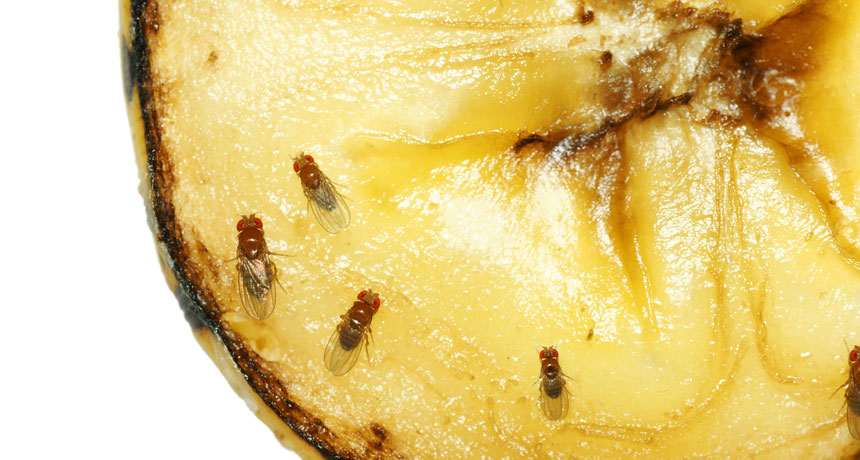Scent of a fruit fly larva comes from its gut microbes
Bacteria, not larvae themselves, produce smell that attracts others of their kind

MMM…GUT SMELL Adult fruit flies as well as larvae may use the whiff of excreted gut bacteria from youngsters of their kind to choose food sites where other fruit flies have flourished.
Sylvie Bouchard/Shutterstock.com